Small businesses must take data privacy seriously to keep their client’s trust and ensure their proprietary information doesn’t become compromised by a malicious actor. Improving data policies to maximize privacy and reduce the risk of data leakage is an essential first step for businesses to take and implementing scalable solutions early will help a business retain a high level of privacy as they grow. Today, we want to talk about some of the best practices for keeping the data your company collects and stores private!
Monitoring Collected Data

The first step to better data privacy is for your business to have a strong understanding of what data it generates internally and which pieces of information it collects from clients. Understanding why that data is collected and how sensitive it is for both your company and the client will help determine the best course of action for securing it. An internal IT team should also monitor the pathways used to collect information to make sure there are no gaps in security that could allow a malicious actor to access the business’ network or steal information as it moves from the client to your network.
Secure Storage and Backup

Data often gets exposed in data breaches and other forms of attacks staged by malicious actors. To keep your data private, every machine on the business’ network should be defended with endpoint protection, multifactor authentication (MFA), and a next-generation firewall to protect against potential attacks made by hackers. Additionally, any sensitive data kept by the company should be backed up regularly to help ensure it won’t be lost or compromised. The best backup services will help defend against ransomware attacks so that hackers won’t be able to steal company data even if they manage to get into your network!
Monitoring Network Devices

Network devices should also be monitored for the appropriate security updates and proper configuration. Security updates should be installed quickly and regularly so that old vulnerabilities won’t pose a threat to your data. Don’t hesitate to review your system configurations with an IT consultant to ensure no private data is accidentally accessible from open ports or internet-facing assets. Policies can also be put in place to provide guidance for which personal devices are allowed to connect to the company’s network, and your security tools should allow your IT team to monitor those devices to ensure they do not offer an attack surface to malicious actors.
Summary
Data privacy and a strong cybersecurity defense go hand in hand, and our team of security specialists here at Robinett Consulting know that small businesses can’t afford to have their data privacy compromised. Clients must feel comfortable trusting your business with their data, and that means your network needs the highest quality IT support it can get. If you think your business needs to improve its security posture, then our team is waiting to get to know your business and provide you with the unique solutions you need at a cost that fits a small business budget!





